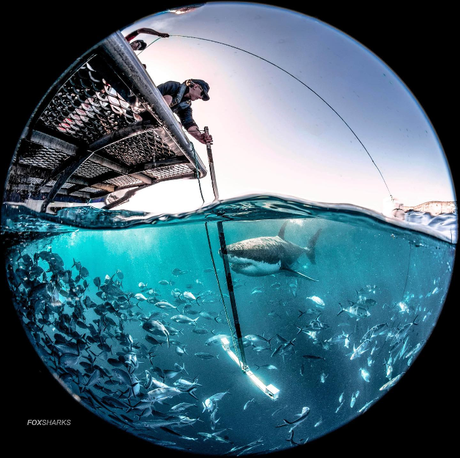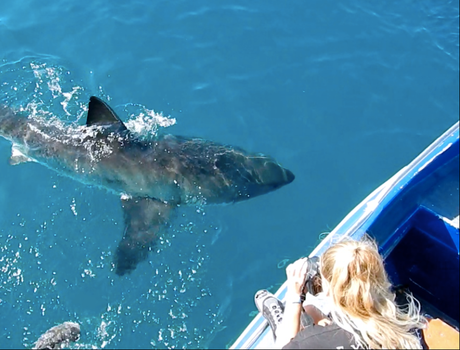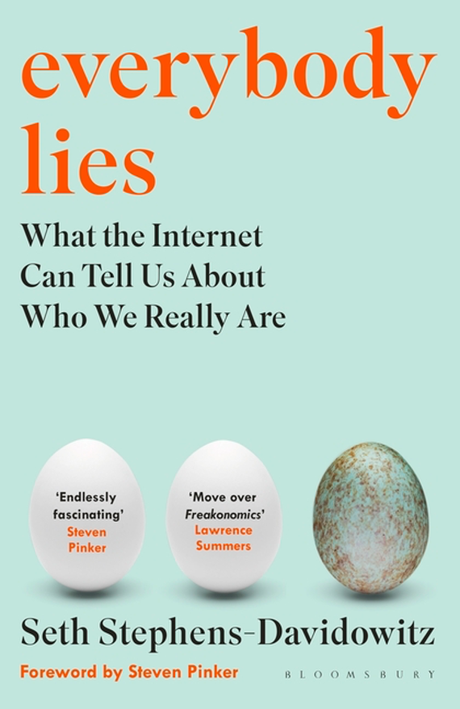Originally published on the GEL.blog
Blistering heat, pouring rain, finding volunteers, submitting field-trip forms, forgetting equipment, data sheets blowing away in the wind — a field-based research project is hard at the best of times. Add white sharks into the mix and you start to question whether this project is even possible. These were some of my realisations when I started my Honours year studying shark deterrents.
A specific memory from my first field expedition was setting off on a six-day boat trip with the comfortable sight of land getting smaller and smaller, in an already rough ocean, to find one of the most feared fish in the sea, the white shark. I was intimidated, but also excited.
Over the next few days reality set in and I experienced the true challenges of working in the field. When there were no sharks around, I had to concentrate on the bait line for hours in anticipation of a sudden ambush. When there were sharks around, it was all systems go and there was no room for error — not with a fish of this size. It didn’t matter how tired or seasick I was, the data had to be collected.

When I found out that I had been offered a field-based PhD extending my shark-deterrent research from my Honours, other than being over-the-moon, I knew I had a big few years ahead of me. I immediately began preparing mentally for the challenges that came along with my field-based research. Particularly the long periods of time I knew I would spend away from home and my family.
In March 2020, I quit my secure government job, in the midst of building our first house, to embark on my PhD journey. To say that I was intimidated is an understatement.
The week I started my PhD, COVID-19 made its way into the country and started sweeping through South Australia, sending us all into lockdown. Working from home was novel for the first week, and the pandemic would surely be over as quickly as it started, right?
The more I, along with the world, learned about the virus the more I realised that this was not going to be over anytime soon. But I was supposed to travel interstate and internationally to collect my PhD data. At the time, it was extremely difficult to travel even within the state for fieldwork. I had just taken a leap of faith to do this project, and now I didn’t even know if my PhD was still possible in the midst of a global pandemic.

When I first applied for the project, I was daunted by the challenges of a field-based project, and suddenly I was completely overwhelmed that I couldn’t do fieldwork. I had no contingency plan, no Plan B.
During this period, one of my supervisors recommended a book called Everybody Lies by US data scientist Seth Stephens-Davidowitz. It explored how anonymous Google searches and other big data sources could be used to uncover our darkest secrets (I highly recommend a read).
We have an abundance of data out there already available to us from which we can learn so much. It then occurred to me that one of my supervisors is a modeller, and data science is his bread and butter.

In discussion with my supervisors, I quickly realised that Google searches were certainly not the only sources of big data out there. There were so many sources of data that I could use to sculpt a PhD looking into shark-bite mitigation measures — from beach-use statistics through to public attitudes towards government-implemented shark-safe strategies. From this alone, I was able to sculpt two PhD chapters. The best part was that these chapters could be done from the comfort of home in the worst-case scenario of a complete lockdown.
When I started my PhD, I thought that the fieldwork would be my biggest challenge. Now I’m thankful for any fieldwork that I get to do. Unexpectedly, I learned the importance of contingency planning very quickly.
But if COVID-19 has taught us anything, it’s how to be adaptable. Even if your Plan B is not what you originally had in mind, there is always a way forward — you just have to be creative.

